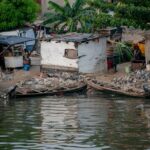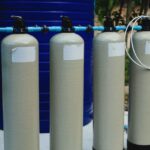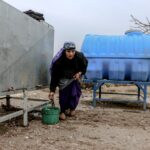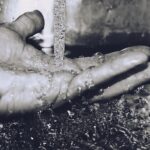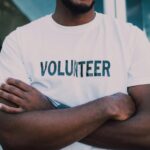Efforts to Improve Water Quality in Liberia
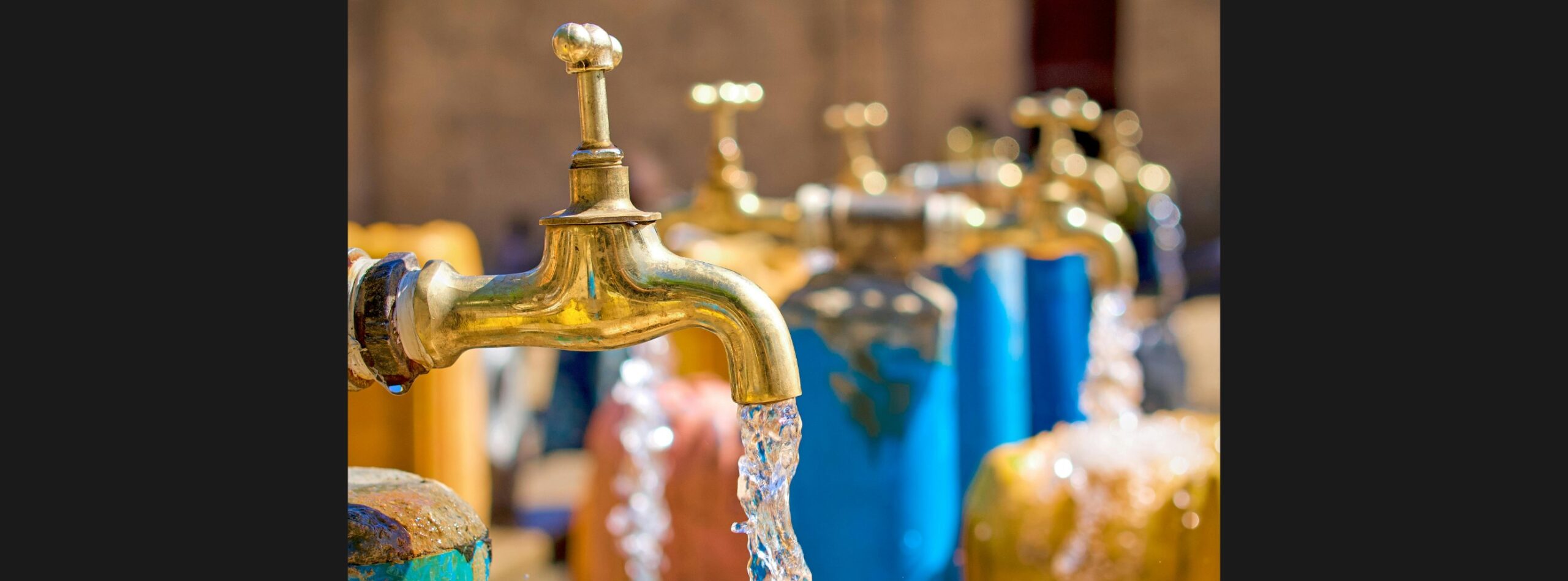
Water is very important for life: people need clean water to drink, cook, and stay healthy. But in Liberia, many people do not have safe water. Some drink from dirty rivers or wells, which can make them sick.
Because of this, different groups are working hard to make water safer. The government, international organizations, and local communities are trying to fix this problem. They are building water systems, teaching people about clean water, and finding new ways to bring safe water to homes.
Government Projects for Clean Water
The Liberian government knows that clean water is important and have started different projects to improve water quality. One way is by fixing old pipes and building water treatment plants. These plants clean the water before people use it.
The government has also made rules to protect water sources like rivers and lakes. They want to stop people from throwing trash or chemicals into the water. Another plan is to bring safe water to more villages so people don’t have to walk long distances to find it.
Help from International Organizations
Liberia is getting help from big international groups like UNICEF and the World Health Organization (WHO). These groups build wells and water tanks so people can have clean water close to their homes, training people to take care of these sources so they don’t get dirty again. Some programs also teach families how to store water safely to prevent contamination with dirt or germs.
Community Efforts to Improve Water Quality
Local communities are also working to keep their water clean. Local groups plant trees near rivers to stop the soil from washing into the water. Others clean wells and make sure they are covered so dirt and animals don’t get inside.
People are also learning how to collect rainwater in big containers. This gives them another source of clean water, especially when there is no rain for a long time. Schools and churches, too, are teaching children how to keep their drinking water safe.
Building More Wells and Boreholes
One way to get clean water is by digging wells and boreholes. A well is a deep hole in the ground where people can fetch water, and a borehole is an even deeper hole with a pump to bring water up. Many groups are helping to build these so that people don’t have to drink from dirty rivers.
A few villages now have hand pumps so they don’t have to carry water from far away. These pumps make it easier to get clean water and are built in places where many families can use them.
Teaching People About Water Safety
Even if clean water is available, people need to know how to keep it safe. Some groups are teaching families simple things like always boiling water before drinking it. They also show people how to store water in clean containers with lids so that dirt and insects don’t get inside.
Children in schools are learning about good hygiene, like washing hands with clean water and soap. This helps to stop the spread of diseases that come from dirty water.
Stopping Water Pollution
Water gets dirty when people throw trash, chemicals, or waste into rivers and lakes. Organizations are working to stop this by teaching people why it’s important to keep water clean. They ask people not to throw garbage into water sources and to help clean up areas where water is already dirty.
Factories and businesses are also being told to stop dumping waste into rivers. The government is making new rules so that water sources are protected.
Bringing Water Filters to Homes and Schools
Not every place has clean water, but people can use special filters to clean their water before drinking it. These filters remove dirt and germs, making the water safer. Some groups are giving water filters to families, especially in areas where there are no wells or boreholes. Schools and hospitals are also receiving water filters so that children and patients can have safe water to drink.
Fixing Broken Water Pipes and Systems
Many places in Liberia have water pipes, but a number of them are old or broken. When pipes leak or get damaged, clean water is wasted, and dirty water can mix with the clean supply. Organizations and the government are working to fix these pipes so that water can reach more people safely. They are also checking water tanks and treatment plants to make sure they work properly. When pipes and water systems are in good shape, more families can get clean water in their homes.
Helping Communities Take Care of Their Water Sources
It’s not enough to build wells and fix pipes – people also need to take care of their water sources. Some groups are teaching local communities how to maintain their wells and pumps so they don’t break down. They also train community leaders to test water quality regularly to make sure it is safe.
In some places, people are planting trees near water sources to keep them clean because they help prevent dirt and chemicals from getting into rivers and streams. When communities take care of their water, they can have safe drinking water for many years.
Using Technology to Make Water Safer
Technology is helping Liberia improve its water quality. Some organizations are using water testing kits that quickly check if water is safe to drink. Others are using solar-powered water filters in places where there is no electricity. There are mobile phone apps that help track water problems. For example, if a well stops working or a pipe is leaking, people can report it through an app and help can come faster.
By using new technology, Liberia can make sure more people have access to clean and safe water.
The Role of Schools in Teaching Water Safety
Schools play an important role in helping children understand the importance of clean water. Many schools now teach students how to keep water safe and why it is important to drink clean water. Some schools also provide clean drinking water and teach children to wash their hands properly. When children learn these habits early, they can help their families and communities stay healthier.
Encouraging Communities to Take Action
People in local communities also have a big role to play in keeping their water clean. Many villages and towns are learning how to protect their wells and rivers from pollution. Communities sometimes have groups that clean up trash near water sources and teach others how to store water safely. When people work together, they can make sure their water stays safe for everyone.
Emergency Responses During Water Crisis
When there is a flood, drought, or disease outbreak, clean water becomes even harder to find. During these times, organizations and governments bring bottled water, build emergency water stations, and provide cleaning supplies to affected areas. These quick actions help prevent the spread of diseases and save lives. However, long-term solutions are needed so that people don’t suffer every time there is a crisis.
Encouraging Water Conservation
Clean water is precious, and everyone must use it wisely. Many people waste water without realizing it. Teaching families, schools, and businesses how to save water can help make sure there is enough for everyone. Simple actions like fixing leaks, turning off taps when not in use, and collecting rainwater can make a big difference. When people learn to use water wisely, they help protect the environment and reduce water shortages.
The Role of Technology in Water Improvement
Technology is playing a big role in bringing clean water to Liberia. New water filters, better pumps, and smart water management systems are helping communities get safe drinking water. A few villages now have solar-powered water pumps that bring clean water from deep underground. Scientists and engineers are also creating new ways to clean dirty water so it can be used again. By using the right technology, Liberia can solve many of its water problems and provide safe water for more people.
Conclusion
Clean water is essential for life, but many people in Liberia still struggle to get safe drinking water. Poor infrastructure, pollution, and lack of resources make it difficult to provide clean water for all. However, many efforts are being made to improve the situation.
Schools are teaching children how to stay safe and keep their water clean. Communities are working together to protect their wells and rivers. During emergencies, quick responses help people get the water they need. At the same time, the government, local groups, and international organizations are working hard to build better water systems and improve access to clean water.
Aqua Maya is one of the organizations helping to bring safe water to the communities that need it most. With more support, investment, and education, Liberia can overcome its water challenges. Everyone deserves access to clean and safe water, and together, we can make it happen.
Sources
1. https://www.unicef.org/liberia/water-sanitation-and-hygiene

